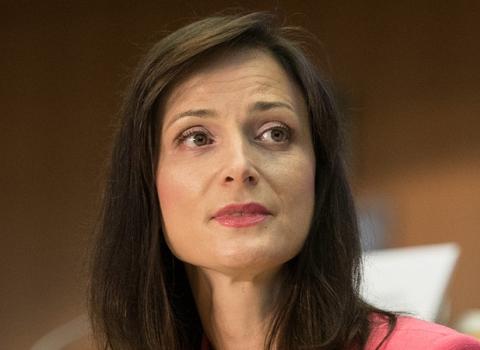Development of vaccines and therapeutics is highly risky and takes time. New models are needed to ensure we are prepared for fresh outbreaks of disease and emerging infections

COVID-19 starkly exposed shortcomings in the global system for funding research into infectious diseases and ensuring equity of access to vaccines and therapies, according to Wolfgang Philipp, acting director of the Health Emergency Preparedness and Response Authority, the new EU agency set up in the wake of the pandemic.
There is, "an underfunding of preparedness and prevention activities that definitely needs to be corrected," Philipp told the ‘Invest for All’ event, organised by the World Health Organisation and the European Investment Bank to discuss ways to address funding and governance issues in global public health that were brought into sharp focus by the pandemic.
Between acute crises like COVID-19 and the longer-running problems of failure to manage preventable infectious and chronic diseases, global public health has suffered from shortcomings in both the public and private sectors, and in governance at all levels.
While there is no single answer or lever to pull, investment and policy leadership are needed to set the right priorities and deliver on them. The aim should be to build more resilient health systems, boost financing and access to new drugs, and foster cross-border and cross-sector collaboration.
As the participants acknowledged, COVID-19 is only the latest in a list of emerging infectious diseases that will grow longer in the future. In parallel, the world is facing the crisis of antimicrobial drug resistance, which is a challenge for modern medicine as a whole.
In the face of these threats, investing more in global research capacity is critical.
"Twenty years ago, we heard about the discussion on the ‘10 -90 gap' saying that around 10% of global health research funding goes on the diseases affecting 90% of the world population," said John Reeder director of the special programme for research and training in tropical Diseases at WHO.
"I am afraid that we have made no progress on this. […] We talk about truly global health problems, but we still are not investing to make truly global responses," Reeder said
The importance of long term investing in research was highlighted by the speed with which – once the imperative was there - COVID-19 vaccines were designed, developed and manufactured.
“It's been that investment over decades that led to the fact that we could make vaccines within 12 months," said Jeremy Farrar, director of the UK research charity Wellcome Trust.
Much of the research Farrar refers to was funded by public or charitable bodies. It is hard to attract private funding for the development of vaccines to treat infections like Ebola that are not endemic in the west, and of treatments for neglected tropic diseases, where there is a high risk of failure and the commercial returns are limited, Philipp noted.
New financial instruments are needed to pull through investment coming from the public and the private sectors in basic science and early stage development, in order to incentivise the development of vaccines and drugs.
The EU did succeed in mobilising €1 billion for vaccines and therapeutics when COVID-19 happened, using a variety of financial tools, including through EIB loans to the German biotech firm BioNTech to co-develop its COVID-19 vaccine with US pharma Pfizer, noted Signe Ratso, acting director general of RTG DG at the European Commission.
“[This] confirmed what we already knew, that planning and investing in research and innovation before a crisis occurs, is crucial to be able to respond to health threats rapidly and effectively," Ratso said.
To build on this, the EU is directing money in Horizon Europe and through partnerships and other initiatives, to research in this area. [We will] continue to invest in infectious disease R&I, ensuring that when the next pandemic hits, we have the methods and tools to tackle it," said Ratso.
Fixing broken markets
In addition to funding for R&D, there are moves to create incentives that will draw private sector money into areas that are not commercially attractive. A prime example is in setting up reimbursement schemes that guarantee companies which develop new antibiotics will get a return on their investment, whilst limiting the use of their products to slow the development of antimicrobial resistance.
Such schemes are being trialled in Sweden and the UK, Farrar noted.
A similar idea is to use government or foundation money to fund market entry rewards for new antibiotics, vaccines and other qualifying treatments that meet specific predetermined criteria to address a defined public health need.
"We can be successful if we pull our resources together,” said Laura Piovesan, deputy director general of the projects directorate at the EIB. “We have all learnings from pandemics, and now it's our duty to leverage these and maintain the momentum […] to drive better investment to combat diseases," she said.





 A unique international forum for public research organisations and companies to connect their external engagement with strategic interests around their R&D system.
A unique international forum for public research organisations and companies to connect their external engagement with strategic interests around their R&D system.